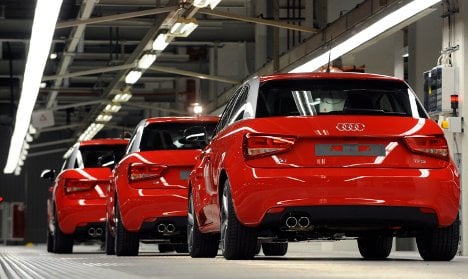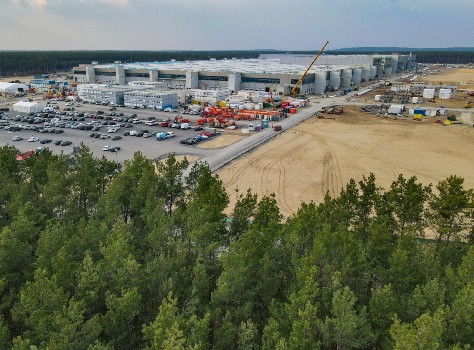The world’s leading luxury car maker, BMW, said overall sales gained 12.2 percent in June from the same month a year earlier to 143,157 vehicles, bringing the increase in the first six months of the year to 13.1 percent.
The BMW brand itself reported a sales gain of 13.7 percent to 119,663 units, while the group’s Mini brand posted a more modest increase of 4.2 percent to 23,202 cars.
Audi, owned by Volkswagen, turned in an 8.7 percent rise to 99,250 vehicles, while Mercedes-Benz, which is owned by Daimler, saw sales climb by 13.2 percent to 113,300 automobiles.
The three German groups account for a majority of luxury car sales and have benefitted from strong demand in China, where Audi leads the pack thanks to VW’s long-standing presence in what is now the world’s biggest market overall.
US sales have also been solid but the automaker’s domestic German market has weakened, with only BMW managing to resist a generalised slump with a slight decline of one percent in the first six months of the year to 135,421 units.
After failing to benefit greatly from government incentives to scrap older cars offered in many countries around the world last year, high-end brands have seen their fortunes improve as the global economy bounces back from recession.
A BMW statement said the group “continues its upward trend in sales” and stressed it “once again made strong gains in the emerging ‘BRIC’ countries,” a reference to Brazil, Russia, India and China.
Audi confirmed it was “on course for a new sales record in 2010,” while Daimler also forecast a marked increase in third quarter sales.
BMW maintained its leadership of the premium car segment with first half sales of 585,755 vehicles.
Mercedes and Audi were roughly neck-and-neck for second place, with sales of 556,700 and 554,950 autos respectively.



 Please whitelist us to continue reading.
Please whitelist us to continue reading.
Member comments